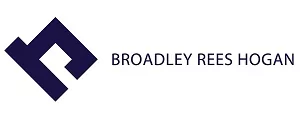Background
The introduction of the Building Energy Efficiency Disclosure Act 2010 (Cth) (the Act) created a scheme promoting the disclosure of information about the energy efficiency of commercial office buildings.
Such disclosure is to be in the form of a Building Energy Efficiency Certificate (BEEC) which sets out, inter alia:
- an energy efficiency rating; and
- a lighting energy efficiency assessment,
of the Building or area of the Building, and broadly speaking, is required where an owner or lessor offers commercial office premises with a Net Lettable Area of 2,000sqm or more for sale, lease or sub-lease.
Unsolicited Offer Regime
It was recognised that procuring a BEEC involves both time and cost. As a result, by way of the Building Energy Efficiency Disclosure Amendment Act 2015 (Cth) (the Amending Act), a regime to assist Building owners in circumstances where it receives an 'unsolicited offer' was established (the Regime).
The Regime captures the following scenario:
- An owner, without any steps on their behalf, is approached by another party with an offer to purchase, lease or sub-lease;
- As a result of the this approach, they progress negotiations with a view to formalising an arrangement.
In order to avoid the obligation to obtain and provide a BEEC, a Building owner or lessor can apply for an exemption pursuant to section 17(3)(c) of the Act. The Amending Act sets out the criteria under which an exemption from the mandatory disclosure obligations may be granted. In addition, the Australian Government has since released specific guidelines (accessible here) to resolve some uncertainty aroused by the Amending Act. We summarise the key aspects on what is required for an exemption:
- The prospective purchaser/lessee/sub-lessee (as the case may be) is required to waive their rights to receive a BEEC;
- The exemption is limited to only those parties (i.e. it is not transferable);
- Within the preceding 3 months, another exemption must not have been granted, and negotiations with another party cannot have occurred.
The exemption is valid for 12 months, although a further 12 month extension may be sought.
The content of this article is intended to provide a general guide to the subject matter. Specialist advice should be sought about your specific circumstances.
We operate a free-to-view policy, asking only that you register in order to read all of our content. Please login or register to view the rest of this article.


